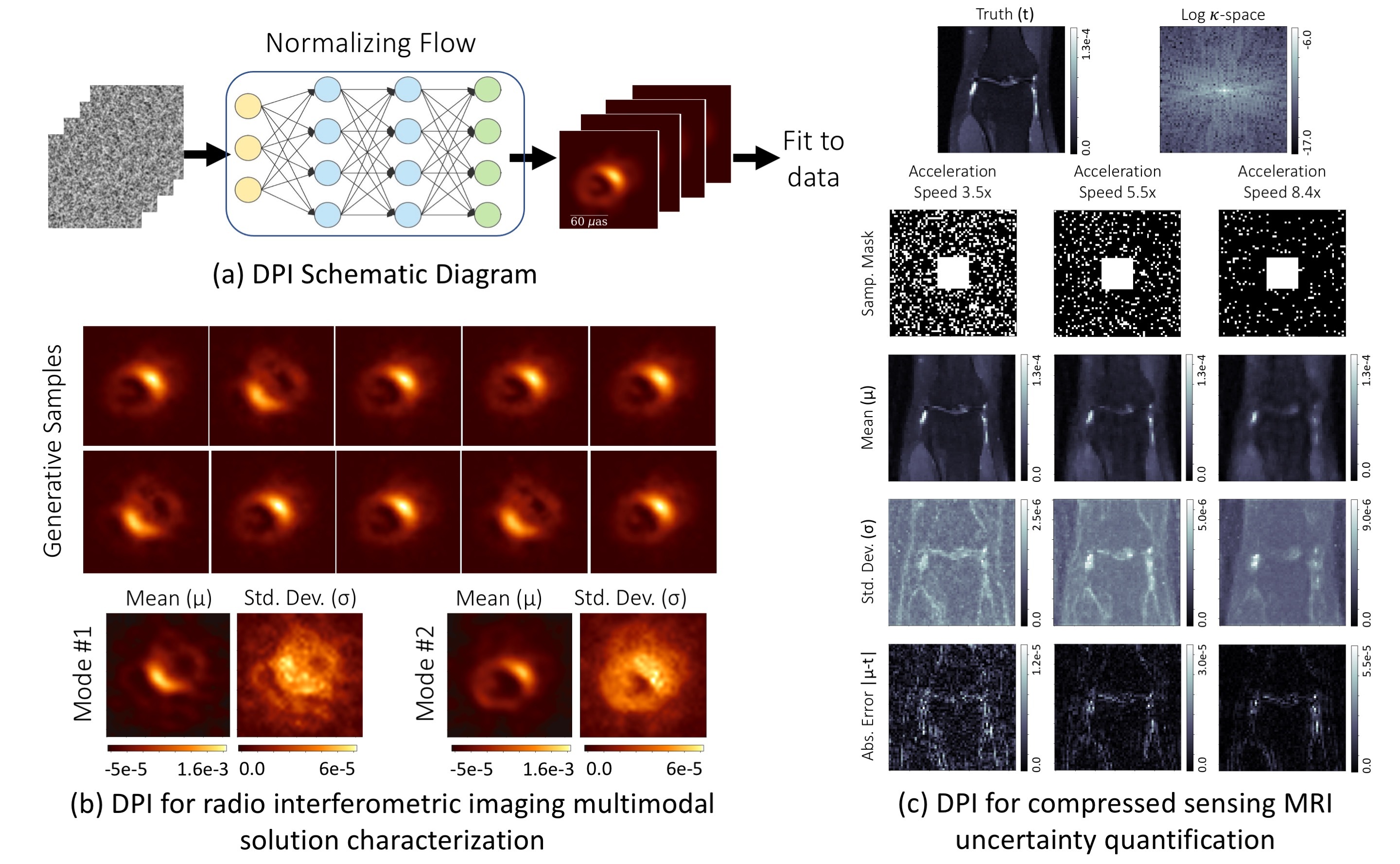Deep Probabilistic Imaging: Uncertainty Quantification and Multi-modal Solution Characterization for Computational Imaging
Computational image reconstruction algorithms generally produce a single image without any measure of uncertainty or confidence. Regularized Maximum Likelihood (RML) and feed-forward deep learning approaches for inverse problems typically focus on recovering a point estimate. This is a serious limitation when working with underdetermined imaging systems, where it is conceivable that multiple image modes would be consistent with the measured data. Characterizing the space of probable images that explain the observational data is therefore crucial. In this paper, we propose a variational deep probabilistic imaging approach to quantify reconstruction uncertainty. Deep Probabilistic Imaging (DPI) employs an untrained deep generative model to estimate a posterior distribution of an unobserved image. This approach does not require any training data; instead, it optimizes the weights of a neural network to generate image samples that fit a particular measurement dataset. Once the network weights have been learned, the posterior distribution can be efficiently sampled. We demonstrate this approach in the context of interferometric radio imaging, which is used for black hole imaging with the Event Horizon Telescope, and compressed sensing Magnetic Resonance Imaging (MRI).
PDF Abstract

